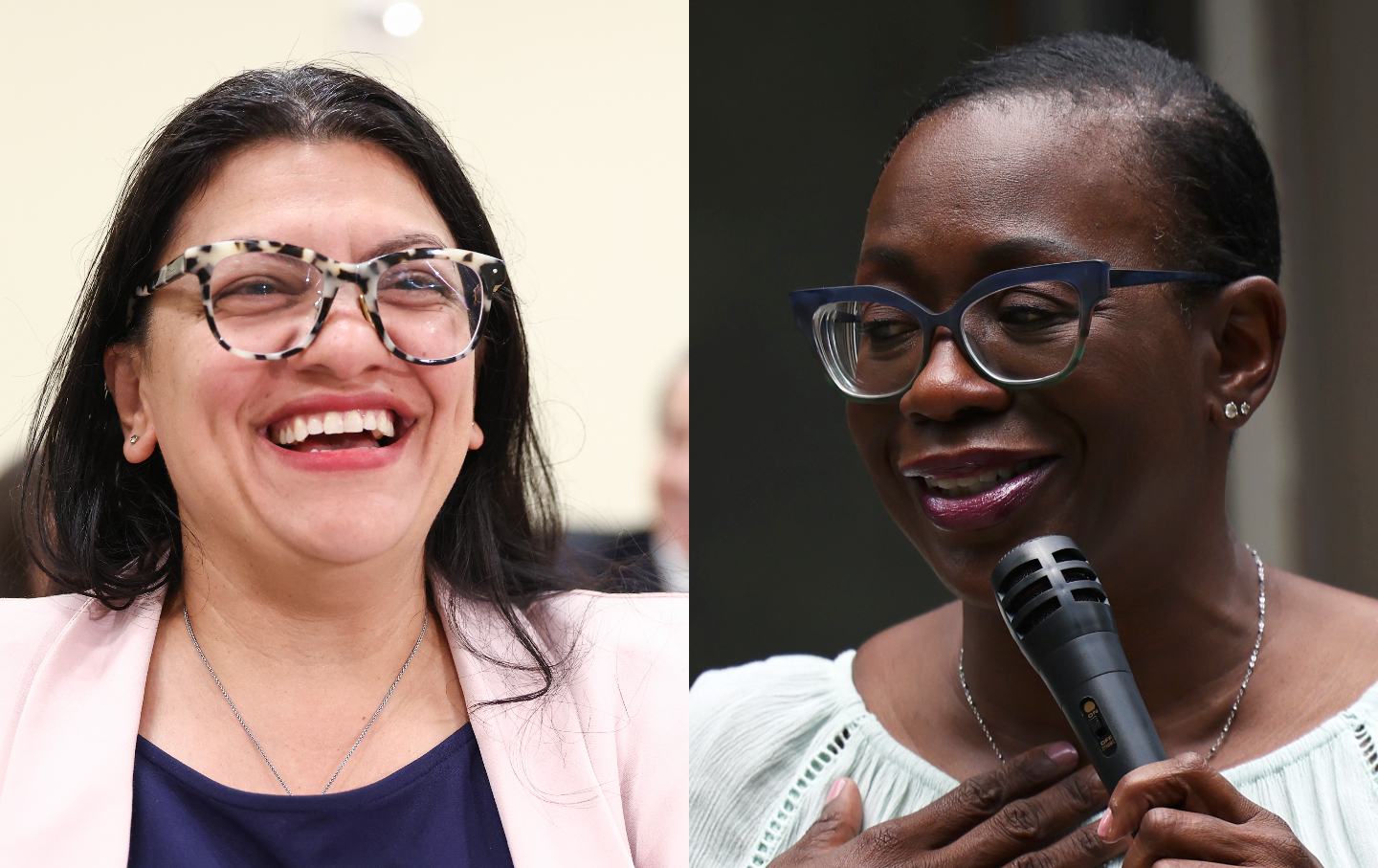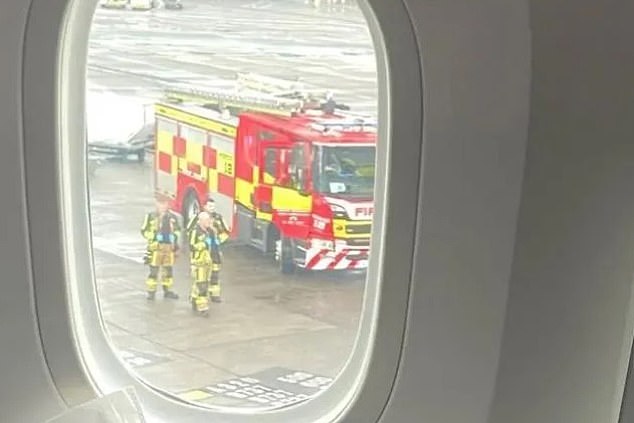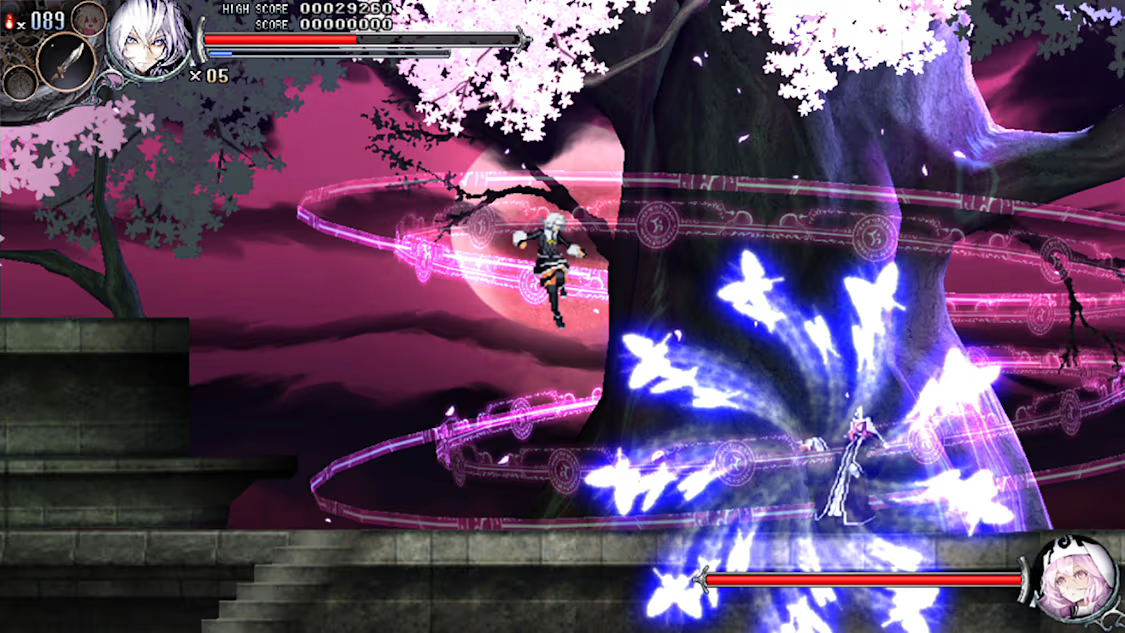We must come together to fight for justice at home and around the world, write Nina Turner and Rashida Tlaib.
Rashida Tlaib and Nina Turner.
(Jemal Countess / Getty Images for Court Accountability; Michael M. Santiago / Getty Images)
From Detroit to Cleveland to Gaza, and everywhere in between, we must fight for a world built on equal rights, freedom from oppression, and human dignity for all people. In the words of civil rights activist Fannie Lou Hamer, “Nobody’s free until everybody’s free.” The collective liberation of oppressed people everywhere is intertwined, and we must come together to fight for justice at home and around the world.
In this spirit, it has been deeply inspiring to see organizations focused on Black liberation, from the NAACP to the Council of Bishops of the African Methodist Episcopal Church to The King Center, embrace the cause of Palestinian human rights. All of these groups have called for a cease-fire in Gaza—and recently, the NAACP, the nation’s leading civil rights organization, went a step further, urging the Biden administration to stop weapons shipments to Israel. This courageous declaration by the NAACP is the latest example of the shared struggle for Black and Palestinian liberation.
When we come together in solidarity to build a multi-racial, cross-faith, multi-generational movement, we realize our power to bend the arc of the moral universe. Just as our civil rights leaders who came before us did, we all have a moral responsibility to speak out against injustice everywhere and dismantle systemic racism, white supremacy, and all systems of oppression.
We also have to unite because our struggles are so interconnected; for instance, according to US Census Bureau estimates, the poverty rate is 33.8 percent in Detroit and 31.8 percent in Cleveland—two of the highest rates among America’s largest cities. In a country that wastes trillions of dollars on war while continuing to defund our social safety net, we know that poverty is a policy choice. Our communities often wonder why elected officials are not addressing this crisis with the urgency it deserves. When we look at our politicians’ indifference to the suffering here in America, we can understand their indifference to the atrocities we are witnessing unfold every day in Gaza.
If our elected leaders can see what is happening in the communities they claim to represent, where people sleep on the streets and children drink contaminated water; if they can see babies in America going to bed hungry, and not act, it’s no surprise that they can also ignore the starving babies in Gaza. If our elected leaders will stand by and allow American police to brutalize Black and brown people in our communities, it makes sense that they also excuse the Israeli forces that train many of them.
So how can we change this?
Current Issue

Despite being built to uphold white supremacy and maintain the status quo, our government has always been an institution that responds to external pressure. During the height of the civil rights movement in the 1950s and ’60s, there was clarity among activists about the need to realize Black liberation and force public policy to protect Black lives. The powerful in Washington didn’t just wake up one day and decide to end Jim Crow. The people forced the passage of civil rights legislation by marching, boycotting, and leading civil disobedience, relentlessly fighting for clear policy demands until they were passed by Congress and signed into law by the president.
We must have the courage to raise our collective voice again on the frontlines of justice. Just as we march in defense of Black lives and against police brutality in our own country, we now march for Palestinian lives, demanding that our own government stop funding genocide.
Unfortunately, the three major evils the Rev. Dr. Martin Luther King Jr. warned of—racism, poverty, and war—are still raging and are all linked. Since October, Israeli forces have killed more than 37,000 Palestinians in Gaza, including over 15,000 children, and more than 85,000 people have been injured. They have killed at least 548 Palestinians, including more than 135 children, in the West Bank. The consensus of the international community is clear: The Israeli government is committing crimes against humanity that not only constitute the crime of apartheid, or racist oppression and segregation, but also violate the Genocide Convention and international law. South Africa, after defeating US-backed apartheid, has now become a voice for Palestinians at the International Court of Justice to stop this genocide, highlighting the need for communities seeking justice to come together in solidarity.
King said that “a nation that continues year after year to spend more money on military defense than on programs of social uplift is approaching spiritual death.” Since 1948, the US has approved more than $141 billion in weapons to the Israeli government as it continues to carry out ethnic cleansing of the Palestinian people. Just imagine what $141 billion invested in our communities could do instead. By one estimate, it would take about $177 billion to lift every American out of poverty.
Why is it that our country always has enough money to bomb people, but never enough to provide people with health care, housing, and enough food to feed their families? Year after year elected officials tell us that there is no money to invest in our communities, universal healthcare, or reparations, only to turn around and pass yet another record-breaking military budget—this year it topped $886 billion—and send tens of billions more of our tax dollars to Israel to fund this death and destruction.
It is past time to end the billions of dollars of funding we send to the Israeli government and to demand human dignity for all people. We must join together as a multiracial, multifaith, multigenerational coalition for change. King reminds us, “True peace is not merely the absence of tension, it is the presence of justice.” The path forward to a just and lasting peace for Palestinians and Israelis must include ending the genocide in Gaza, lifting the blockade, facilitating the release of hostages and arbitrarily detained Palestinians, ending the occupation, and dismantling the racist apartheid system. It is only then that Palestinians and Israelis can peacefully coexist in their homeland with equal rights, safety, and freedom.
The movement that forces our government to stop funding endless war is the same movement demanding universal healthcare, housing for all, reparations, and clean air and water. The same students, teachers, labor leaders, and community activists who are organizing for a permanent cease-fire are also organizing for the liberation of all people, including Black liberation. This moment calls for uncompromising moral clarity. History will remember those who took a stand to demand that our government invests in life, not death.
This is that movement, and we are those people.
Popular
“swipe left below to view more authors”Swipe →
Dear reader,
I hope you enjoyed the article you just read. It’s just one of the many deeply-reported and boundary-pushing stories we publish everyday at The Nation. In a time of continued erosion of our fundamental rights and urgent global struggles for peace, independent journalism is now more vital than ever.
As a Nation reader, you are likely an engaged progressive who is passionate about bold ideas. I know I can count on you to help sustain our mission-driven journalism.
This month, we’re kicking off an ambitious Summer Fundraising Campaign with the goal of raising $15,000. With your support, we can continue to produce the hard-hitting journalism you rely on to cut through the noise of conservative, corporate media. Please, donate today.
A better world is out there—and we need your support to reach it.
Onwards,
Katrina vanden Heuvel
Editorial Director and Publisher, The Nation

More from The Nation
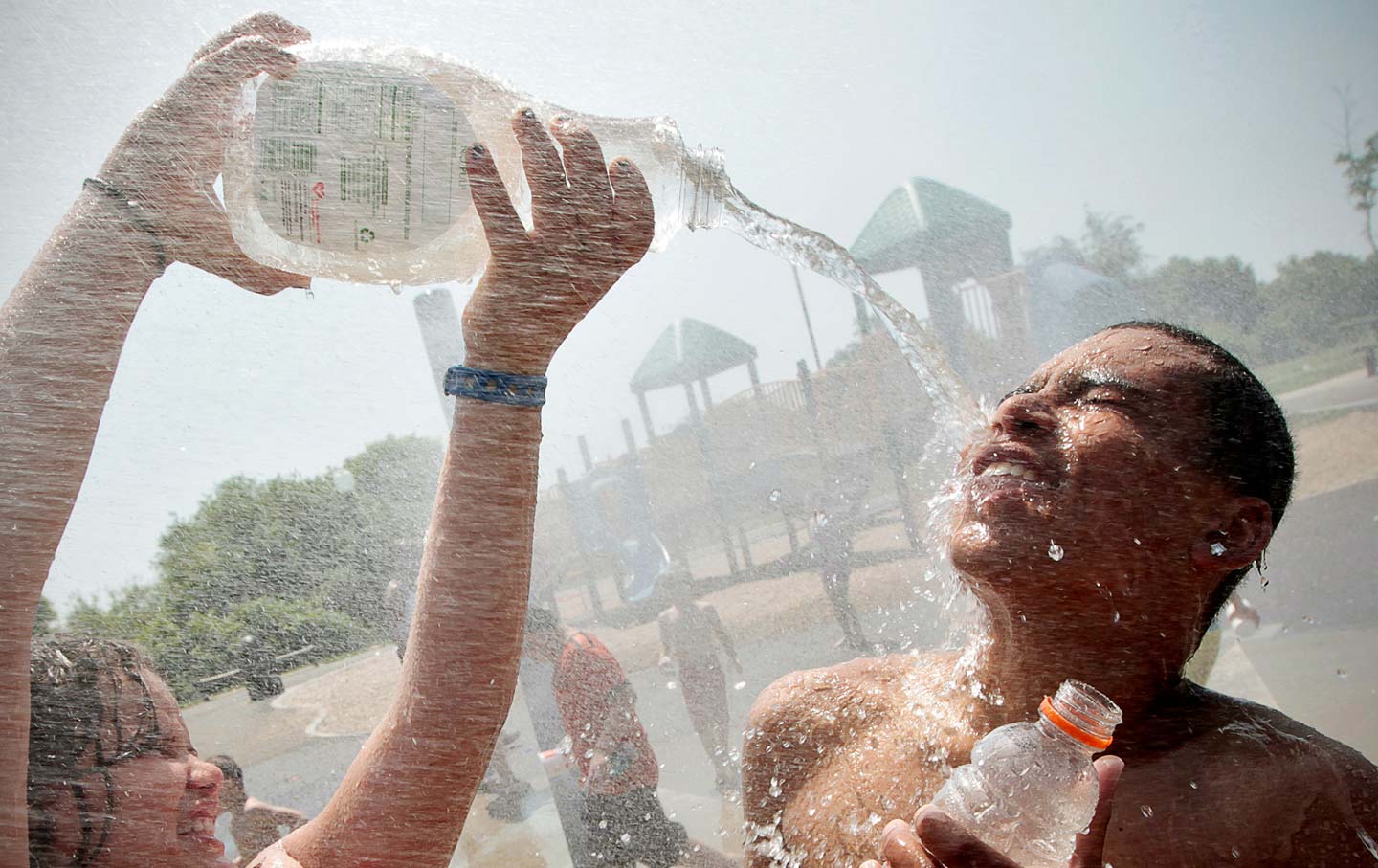
Consider it the feedback loop from hell: The greenhouse gas emissions air-conditioning releases ensure that we will continue to rely on it.
Stan Cox

The Washington Post is now run by a master of squalid tabloid journalism.
Jeet Heer
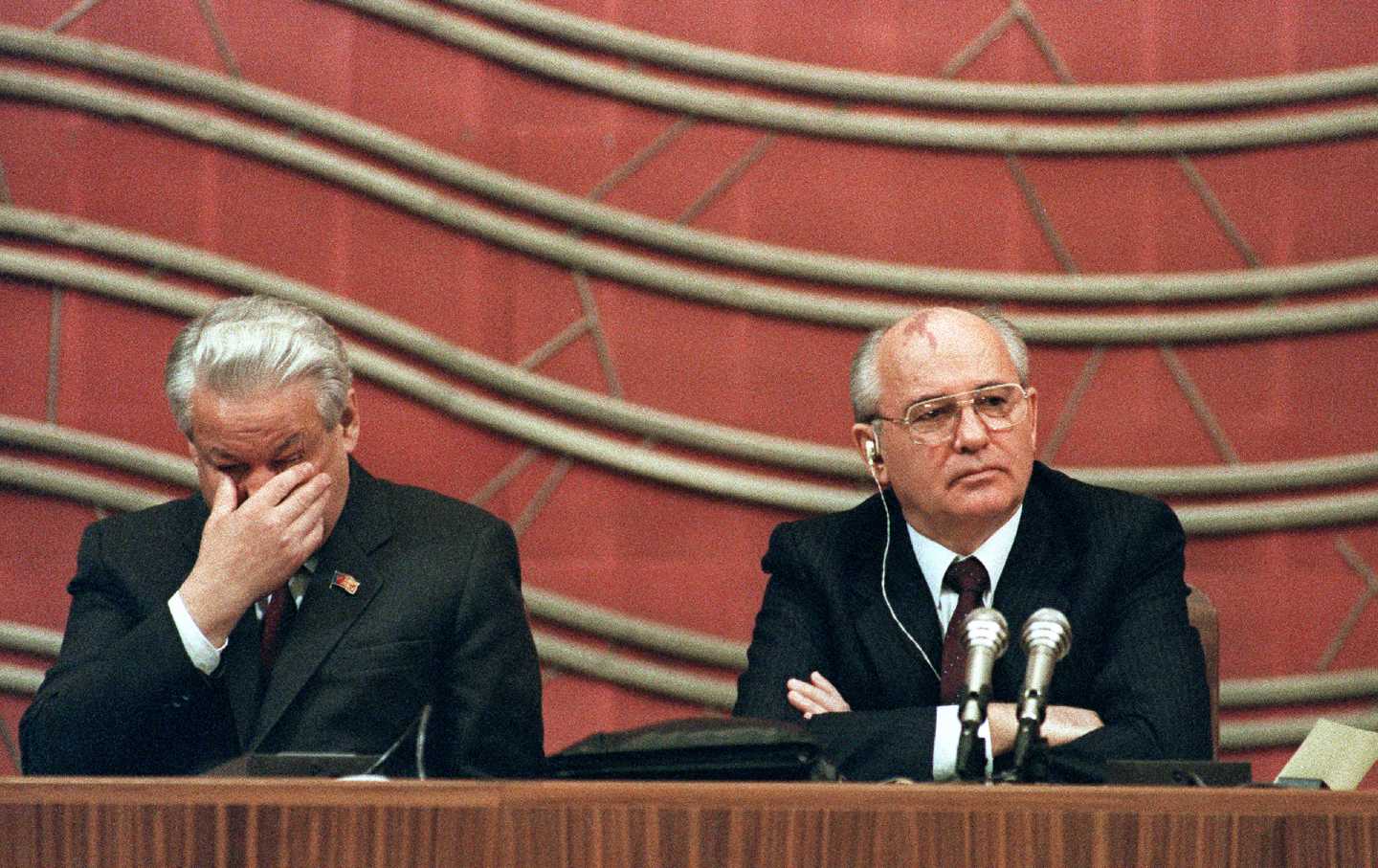
On the 35th anniversary of the First Congress of People’s Deputies in Moscow.
Nadezhda Azhgikhina
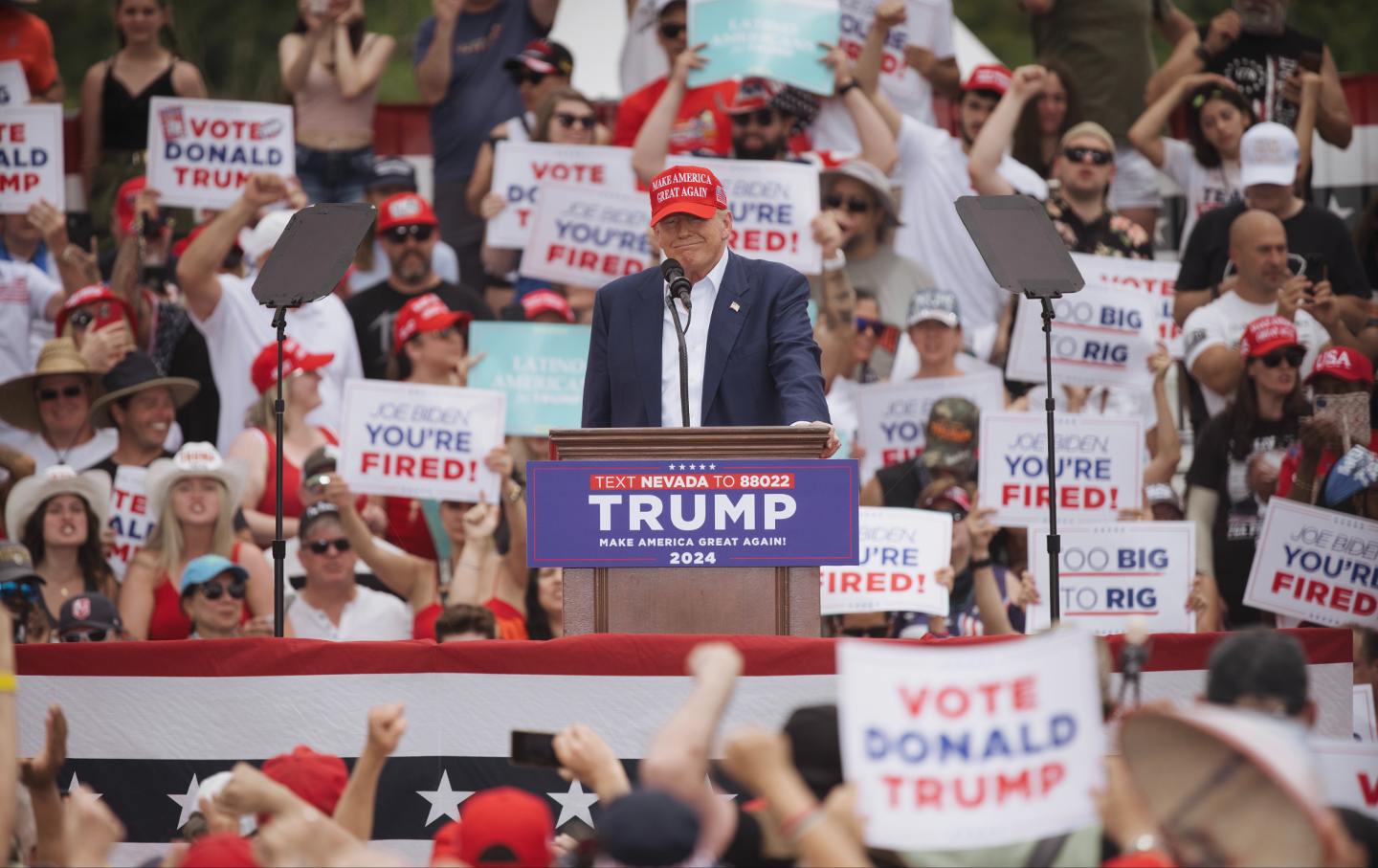
Most of them are with Trump, and that’s not going to change. Instead, Democrats should target a far more winnable group of voters.
Steve Phillips
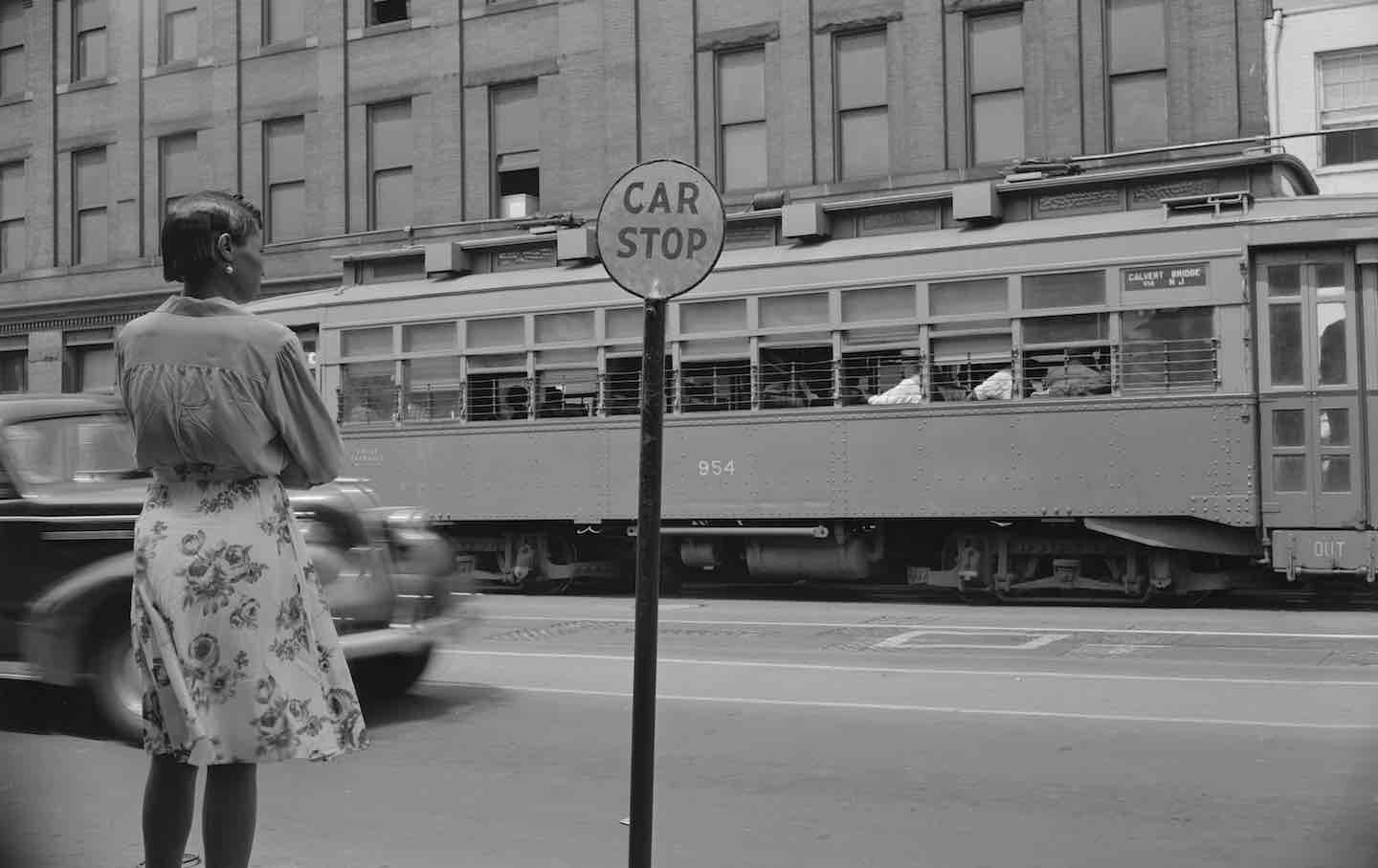
Neighbors and Other Stories, a posthumously released collection, looks at all the uncertainty and promise of coming of age during and after the civil rights era.
Books & the Arts
/
Kelton Ellis
